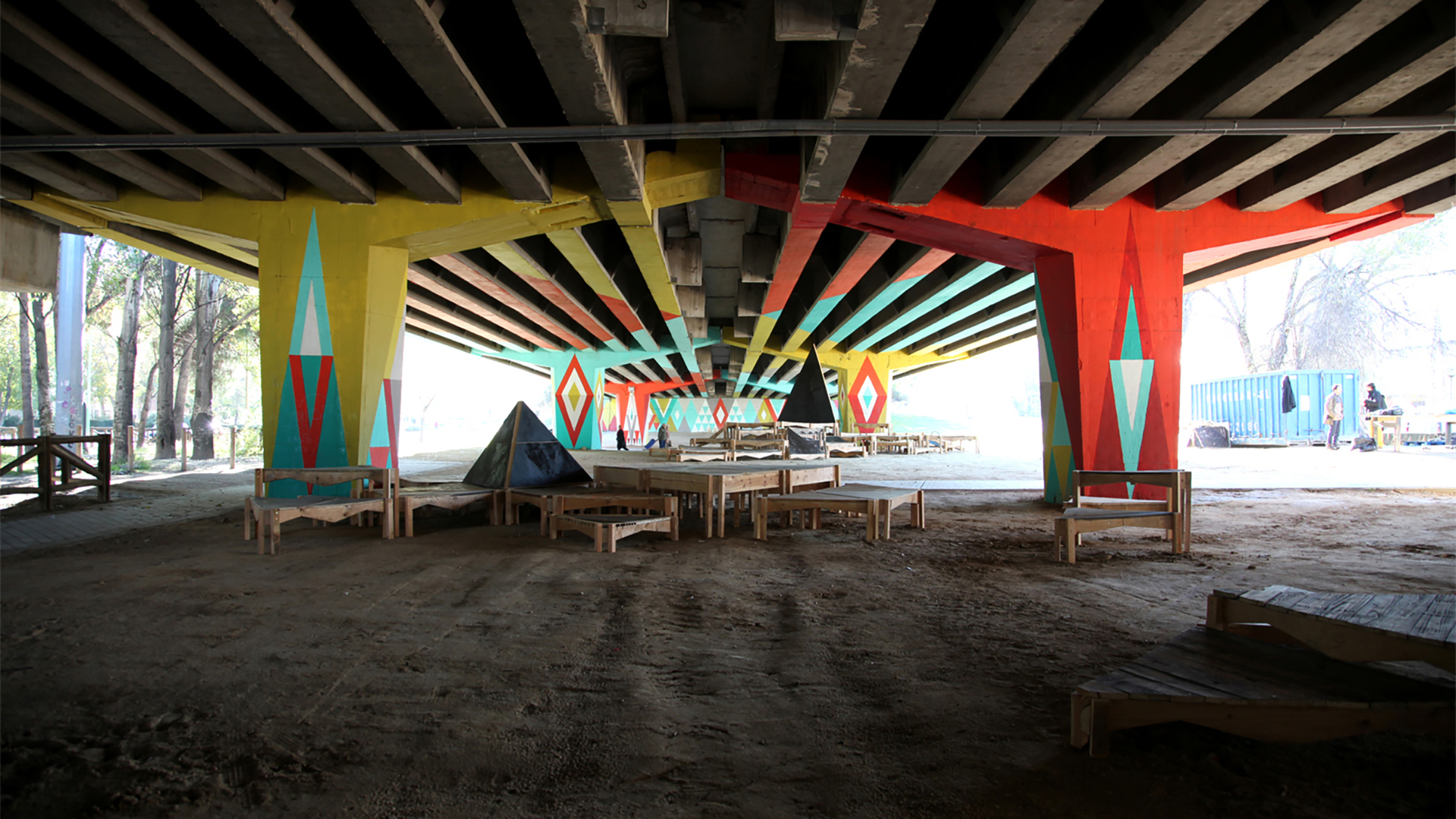Self-Made Neighborhood
We live in increasingly multicultural and globalized societies, experimenting deep changes and in some cases the loss of their traditional referents. In this situations culture becomes, as we said, an engine of development; and public space as an ideal meeting place to build up culture. Self-made Neighborhoods aims to create an interdisciplinary network of cultural professionals at European level to enable the transfer of knowledge and experience. One of the objectives of the project is, therefore, the meeting of groups working in different cultural settings but with the common objective to foster social change through culture. Through meetings in different countries and individual experiences we search for a replicable methodology that could be used afterwards for collective participation in cultural development of the neighborhoods.
Self-made Neighborhoods aims to promote artistic creation and cultural development through cooperation and dialogue as a vehicle for social consolidation. Europe has had a metropolitan model based on local communities (small businesses, cultural centers, neighborhood associations, etc..) this model has served to generate collective values based on individual responsibility. Within this model the public space has emerged as the place of economic, social and cultural exchange, but with the emergence of new patterns of leisure and business development, the interaction and exchange between community members has lost wealth, strength and density. Meeting places have been simplified, becoming more specialized and concentrating in small areas. The consequence of this new model is that the city is in a constant loss of content (cultural, social, …etc) and of use (dormitory towns, large entertainment centers, business areas, etc..). This problem has jumped professional boundaries and has been approached from very different perspectives, generating a catalog of practices all along Europe. The problem is that these work have not crystallized yet into a common methodology, in a related body that would be able to link collective knowledge and to interrelate all these experiences with a common purpose. Self-made Neighborhoods aims to create a common methodology by working in an open network of partnerships. Self-made Neighborhoods would support cultural processes as a driving force of social change and community development.
Projects are developed within our strategic lines so projects had a temporary action but Basurama is permanent project.
Projects have different timelines from 1 day to 1 week to 1 month to several years.
Basurama
Basurama is a forum for discussion and reflection on trash, waste and reuse in all its formats and possible meanings. It was born in Madrid School of Architecture (ETSAM) in the year 2001 and, since then, it has evolved and acquired new shapes. Our aim is to study those phenomena inherent in the massive production of real and virtual trash in the consumer society, providing points of view on the subject that might generate new thoughts and attitudes. We find gaps in these processes of production and consume that not only raise questions about the way we manage our resources but also about the way we think, we work, we perceive reality.
Basurama is an association based in Madrid (Spain) of architects and cultural officers with a main focus in intervention on local resources and trash, by looking at its capacities – if handled creativity – for social transformation within the urban environment.
The work of the organization can be summarized under four areas of intervention: – Creativity, by enhancing new ways of thinking to find new solutions to old problems in the urban environment; – Reutilization of local resources present in public spaces, by activating local communities in their re-definition; – Social participation, by promoting educational campaigns that underline the importance of collective participation in the definition of their own environment; – Connecting, by enhancing new channels of public communication among citizens and with the public authorities.
Basurama was founded in 2001 by Carlos Alarcón Allen, Santiago Bouzada Biurrun, Benjamín Castro Teherán. Juan López-Aranguren Blázquez, Rubén Lorenzo Montero, Alberto Nanclares da Veiga, Manuel Polanco Pérez-Llantada, Pablo Rey Mazón, Miguel Rodríguez Cruz
The selection process of the projects:
Basurama has a weekly meeting for work organization and project design and implementation.
The selection of the projects is normally based on the wishes and possibilities of collective members; they work in those projects they believe in. They work by inputs and is the join of forces that point the relevance of the project.
Basurama is a collective, so everyone in the organization is responsible for the content of the tasks/topics.
There is no jury or board.
About 20 projects are realized per year. 70% of projects being selected for realization are actually realized.
Photo Credits:
1-5. Basurama, Autobarrios San Cristobal process and final project
Self-Made Neighborhood
- Authors: Basurama
- Location: Madrid / Spain
- Year: 2001 > ongoing
- Budget: 100.000€ - 300.000€
- URL: http://www.basurama.org

